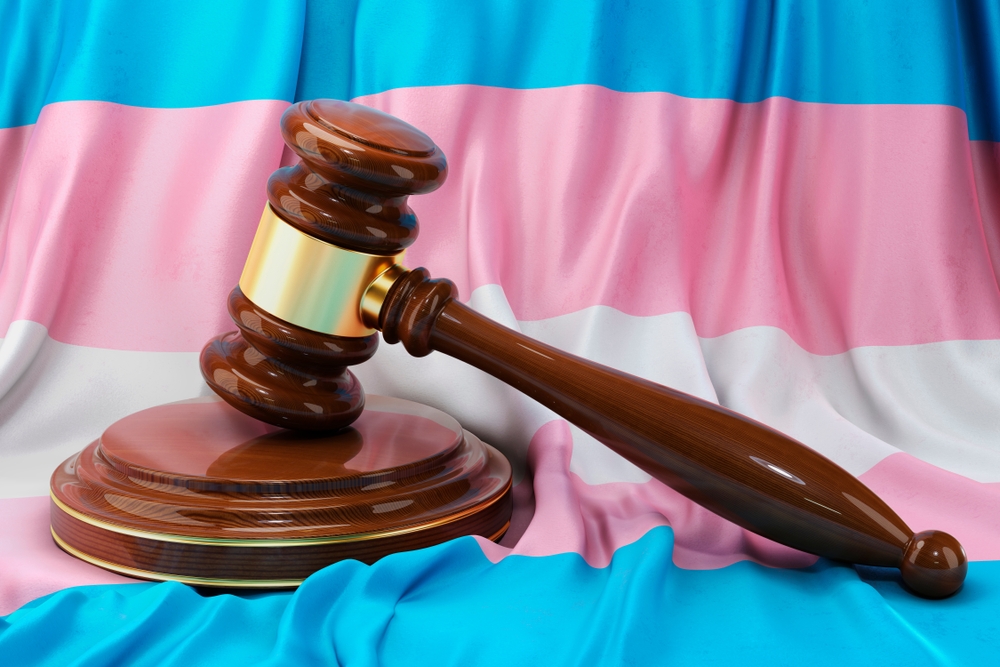After a decade-long legal battle, a transgender man and former student of the Blue Springs School District should receive over $4 million in damages for discrimination that occurred when he was an adolescent, the Missouri’s Western District Court of Appeals ruled Tuesday.
Judge Anthony Gabbert wrote the court’s unanimous decision, ruling that the school district discriminated against the student, identified by his initials R.M.A., on the basis of sex when it barred him from using the boys’ locker room.
A key part of the appellate court’s decision was the factor that spurred the school district’s discrimination.
Attorneys for the Blue Spring School District did not contest that R.M.A. was treated differently, according to Gabbert’s ruling, but said it was because of his “female genitalia.”
“School district employees suggested that R.M.A. had been excluded from the boys’ restrooms and locker rooms because of [the] school district’s belief that he had female genitalia,” Gabbert wrote. “[The] school district did not actually determine the nature of R.M.A.’s genitalia, however, and does not speculate, inspect or otherwise inquire as to the genitalia of other male students.”
Judge Gabbert ruled that Blue Springs School District discriminated against former student by barring him from boys’ locker room.
The admission of different treatment based on assumed genitalia, Gabbert wrote, was itself discrimination on the basis of sex.
Part of the judicial proceedings included testimony from R.M.A.’s doctor, who said R.M.A. was a male for as long as she has been treating him (which began at age nine).
During his time as a student, R.M.A. received an updated birth certificate with his male gender identity.
School district employees and school board members told R.M.A.’s mother that locker-room access is determined by birth certificate. After she gave the corrected birth certificate to school district officials, R.M.A. was still denied access to boys’ restrooms and locker rooms.
The school board discussed R.M.A’s birth certificate in a closed-door meeting, according to court documents, but never gave his mother a clear answer about the policy.
“The evidence at trial… was that (Blue Springs) School District had an unwritten policy of using birth certificates to determine sex,” Gabbert wrote. “Yet, [the] school district refused to tell R.M.A.’s mother that it would honor a corrected birth certificate stating he is male because (it) wanted to keep its options open in the event R.M.A. was able to obtain a corrected birth certificate.”
R.M.A’s birth certificate was amended in December 2014, around a year after he began asking to use the locker room that aligned with his gender identity and two months after he filed a complaint with the Missouri Commission on Human Rights.
R.M.A. filed the lawsuit in October 2015, starting a complicated legal process. The initial trial court dismissed his claim in 2016, saying the Missouri Human Rights Act does not protect claims on the basis of gender identity. The Missouri Supreme Court, in 2019, reversed this decision and opened the doors for another trial.
Damages awarded
A December 2021 jury trial awarded R.M.A. over $4.7 million in damages and legal fees, but attorneys for the Blue Springs School District asked for a “judgment notwithstanding the verdict,” a ruling that allows a judge to usurp a jury’s decision.
The school district argued that R.M.A. only proved that he was discriminated against “because of his female genitalia” and not on the basis of sex.
The trial court judge sided with the school district, which would have spurred another trial. But Tuesday’s decision reverses that judge’s call, returning the case back to the jury’s verdict.
There are other similar cases currently winding through Missouri’s courts, including a lawsuit against the Platte County School District brought by the ACLU of Missouri.
The Blue Springs School District could not be reached for comment by time of publication.
Related report: 2024 U.S. national survey on the mental health of LGBTQ+ young people — The Trevor Project’s 2024 U.S. National Survey on the Mental Health of LGBTQ+ Young People amplifies the experiences of more than 18,000 LGBTQ+ young people ages 13 to 24 across the United States. For the sixth year, the U.S. National Survey uncovers the reality that there is a significant association between anti-LGBTQ+ victimization and disproportionately high rates of suicide risk — and that far too many young people struggle to access the mental health care they need.
***
Annelise Hanshaw writes about education for the Missouri Independent — a beat she has covered on both the West and East Coast while working for daily newspapers in Santa Barbara, California, and Greenwich, Connecticut.
Missouri Independent is part of States Newsroom, a nonprofit news network supported by grants and a coalition of donors as a 501c(3) public charity. Missouri Independent maintains editorial independence.

































